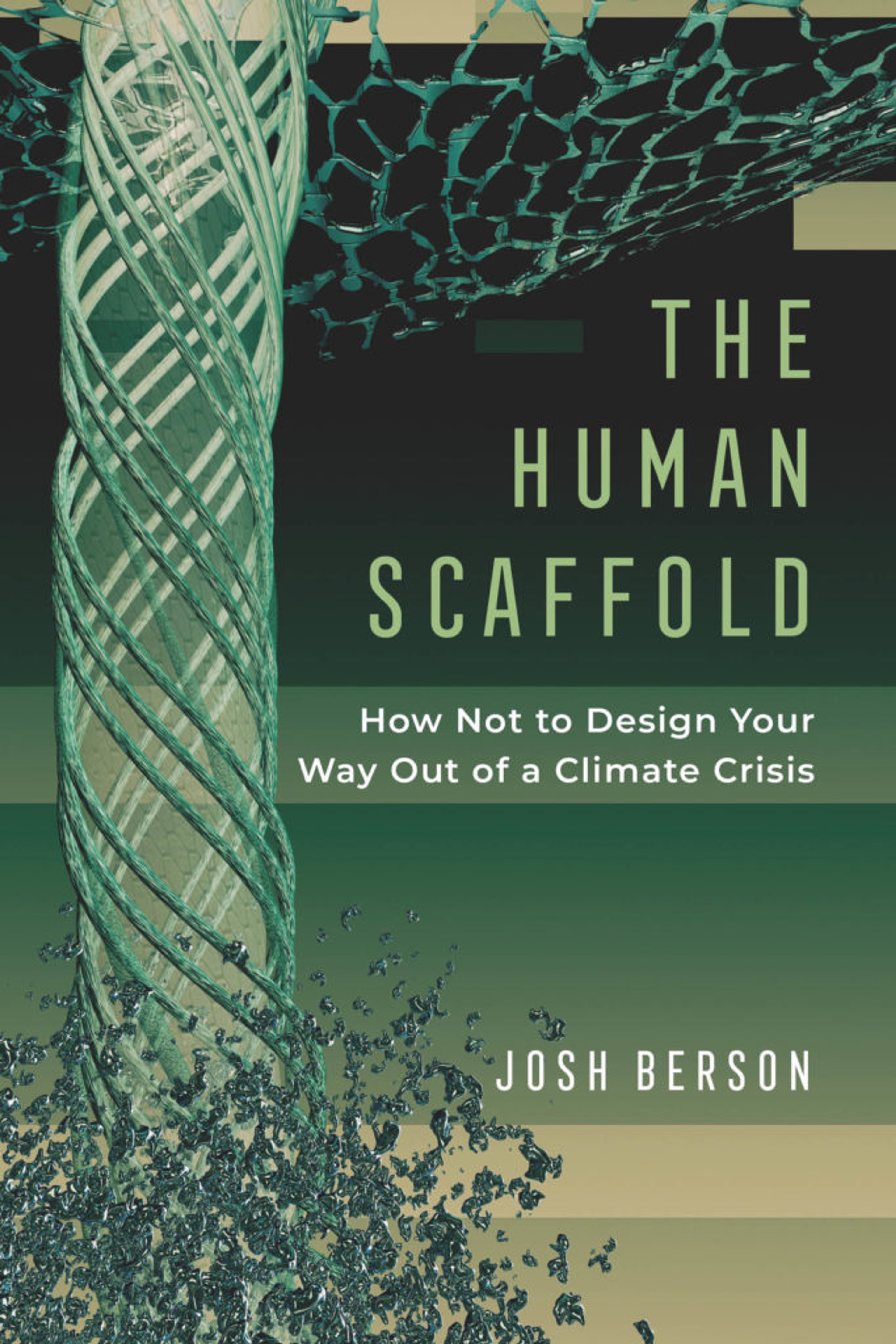The Berggruen Institute Presents Summer Series “The Human Scaffold” Exploring Humanity’s Fixation on “Stuff”
The Berggruen Institute will host an event series based on The Human Scaffold: How Not to Design Your Way Out of a Climate Crisis, by anthropologist and alumni Berggruen Fellow Josh Berson. This book was published in 2021 by the Institute as part of its “Great Transformations” series in partnership with UC Press. The virtual events will use the book’s critique of our civilization’s intellectual preoccupation with physical stuff to illuminate urgent public challenges such as climate change and social justice.
“The world we inhabit,” Berson notes, “is a world of stuff — of chairs, blenders, and earbuds. It is easy to imagine that stuff represents the principal scaffold of human adaptation. But over the long term, it’s the patterns of behavior in which stuff is embedded that matter more. As with language, the traces are ephemeral but the patterns endure. By learning to attend to these patterns, and the ecological circumstances in which they take form, we can better equip ourselves to imagine ways of abiding in volatile environments.”

The first event, entitled “Keeping Cool: Lessons of Low-Tech Thermoregulation for the Climate Change Era,” will take place at 9:30 AM PT on Wednesday, July 28, featuring Berson, artist and researcher Simon Penny, and Berggruen Institute Vice President of Programs Nils Gilman. Future events will include “The Politics of Breathing,” a discussion with designer Elizabeth Chin on the value of viewing breathing as a skillful activity on Thursday, August 12 at 10 AM PT; and “Fun and Games: Ritualized Exchange and Consumer Capitalism,” a conversation with entrepreneurship scholar Vaughn Tan on how economic growth depends on the mind games humans play with physical stuff, tentatively scheduled for the final week of August.
Each entry in the Great Transformations book series exposes divergent insights to deepen understanding of the great political, economic, social, and cultural transformations sweeping our world. The series launched in 2019 with Renovating Democracy: Governing in the Age of Globalization and Digital Capitalism, by Institute co-founders Nicolas Berggruen and Nathan Gardels.
This event series underscores the recent launch of the Institute’s newest program area, “The Planetary.” The Planetary seeks to build a reimagined understanding of global politics capable of addressing challenges that transcend borders and traditional competition among nation-states, from microbes and atmospheric carbon molecules to oceanic plastic and algorithmic data. It calls for a philosophical shift that breaks with human-centered understandings of the world, and recognizes human civilization as but one part of a broader ecology of being.
“So many planetary challenges are exacerbated by how much our narrative of human progress is defined by possession of physical goods,” said Gilman. “The Human Scaffold highlights the overlooked biological and behavioral ecology of our global civilization, and embodies a major aspect of the philosophical shift The Planetary calls for.”
###
About Josh Berson:
Josh Berson is a barefoot runner, committed vegan, and anthropologist of science. When he was in graduate school, he often had to explain to guests that he had not moved out — he was simply not in the habit of keeping much furniture, or much of anything, in the house. In the years since, Berson has come to regard “living epiphytically” as a research practice: a way of exploring the role that stuff plays in our lives and a design fiction for a future where stuff has, as it were, receded from view. The Human Scaffold grew out of an experiment, ten years and counting, in reducing the stock of one’s worldly possessions to something that fits in a knapsack, becoming intimately familiar with the practical significance of stowage spaces, paring away redundancies, substituting a metronome for a gym — and seeking out places to unpack and hear silence.
Born and raised in New York, Berson earned his A.B. in Visual and Environmental Studies from Harvard University in 1997, and his Ph.D. in History and Sociology of Science from the University of Pennsylvania in 2009. In recent years he has lived mostly in nomadic orbit of a home base in Berlin, including stays in London, the Hague, Los Angeles, Melbourne, Shanghai, and Tokyo.